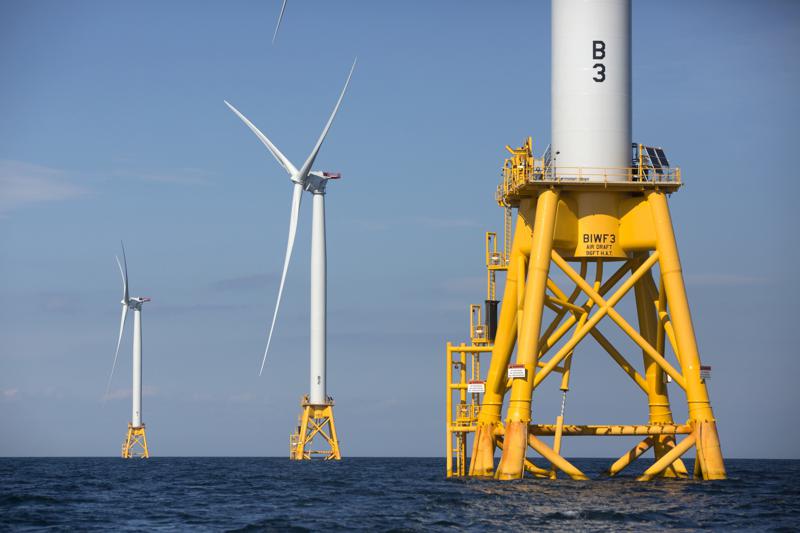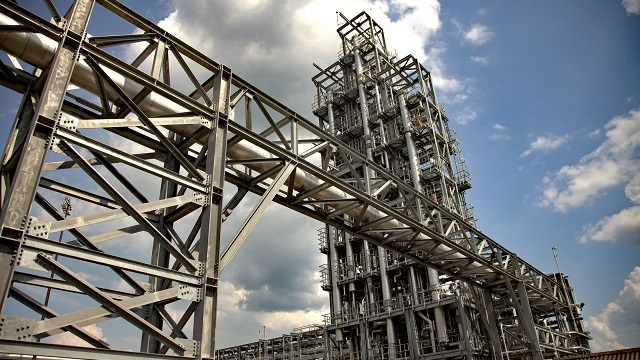Tommy Tuberville and Roger Marshall introduce bill to save clean, safe nuclear power

Senators Tommy Tuberville and Senator Roger Marshall introduced the Thorium Energy Security Act to prevent the destruction of Uranium 233 (U-233), a critical element used to produce clean energy. The senators believe that preserving the United States’ supply of U-233 is of national importance. The Act will immediately halt the Department of Energy’s program to destroy uranium 233, saving this vital national asset for future study, medical research, and clean energy. The U.S. pioneered thorium molten salt breeder reactor technologies in the 1960s at Oak Ridge National Labs. This technology, which employed uranium 233 (U-233), produced clean, safe power, but did not produce plutonium like other reactor designs. As our country was focused on growing our nuclear arsenal, the U.S. shelved thorium and U-233 for decades. In 2001, the Department of Energy began the process of destroying our stocks of U-233. Under the Obama administration, the Department of Energy transferred our thorium technology to China in a cooperative agreement with the Chinese Academy of Sciences. As a result, China just tested their first molten salt thorium reactor and is believed the be using the thorium to power their newest aircraft carrier. “Thorium and U-233 hold the promise to produce clean, safe power and are vital to our national security. Energy will continue to be at the heart of global conflicts, so the United States must invest in energy technology,” Senator Tuberville stated. “China clearly saw the value in our thorium research—they’ve taken up where we left off, and we may soon see thorium-powered Chinese aircraft carriers and thorium reactors on the Belt & Road courtesy of American technology.” The Department of Energy’s “next generation” reactors are reliant on Russian highly-enriched, low-assay uranium (HALEU). Fortunately, America has the technology and U-233 material to produce energy that doesn’t depend on Russian HALEU. Moreover, molten salt breeder reactors based on the thorium cycle cannot melt down and are capable of consuming nuclear waste, solving the two most pressing problems of nuclear power. “Uranium-233 is too valuable and too useful to just be thrown in the trash, a fact that the Chinese Communist Party understands but our Department of Energy clearly does not. While we are spending millions of dollars to destroy U-233, the CCP is investing in it by preparing to build a new generation of advanced aircraft carriers and nuclear reactors powered by U-233,” stated Marshall.“The United States needs to lead on advanced nuclear reactors and not leave the future of innovative clean energy technologies in the hands of China. Preserving this valuable national resource is the first step on that path.”
Interior Dept. gauging interest in Gulf of Mexico wind power

President Joe Biden’s administration wants to know whether offshore wind companies want to move into the Gulf of Mexico. The agency that oversees offshore leases will publish a request for interest Friday in the Federal Register for areas off Louisiana, Texas, Mississippi, and Alabama, the Interior Department said Tuesday. Those areas are largely in shallower waters where many wells have played out rather than the deep seas where the Gulf’s offshore oil and gas industry is now focused. Biden has said he wants enough wind-generated electricity for more than 10 million homes nationwide by 2030. Offshore wind development has the potential to create tens of thousands of good-paying, union jobs across the nation, said Interior Secretary Deb Haaland. Her agency’s request for interest from developers “is an important first step to see what role the Gulf may play in this exciting frontier,” she said. “The Gulf of Mexico is extremely well-positioned for the exploration of new offshore technologies and energy opportunities,” said Erik Milito, president of the National Ocean Industries Association, which includes companies building both wind and oil and gas facilities offshore. “Whether we are talking about offshore wind or other renewables such as hydrogen, expanding the energy portfolio of the Gulf of Mexico will depend upon a robust offshore oil and gas industry,” he said in an emailed statement. Offshore oil and gas companies are building wind farms in the Atlantic, Milito said. He said he expects the government proposal to generate interest, but companies will need time to study and understand the market. Although the main focus is on wind energy, the Bureau of Ocean Energy Management is also seeking information on other renewable energy technologies, the Interior Department said. As part of the Biden administration’s push for renewable energy, the Department of Energy has $3 billion in loan guarantees available to support offshore wind. It also has pledged $500 million to improve ports from which the huge turbines would be hauled out to sea. California and the U.S. government announced an agreement last month to open up areas off that state’s coast to the Pacific coast’s first commercial wind energy farms, using floating turbines. And in March, the Interior Department published a four-volume environmental impact statement for a proposed huge wind farm off Martha’s Vineyard in Massachusetts. That was a crucial step toward a decision on whether to approve what would be the nation’s first commercial-scale offshore wind power development. Friday’s publication will start a 45-day public comment period about developers’ interests, potential environmental consequences, and other uses of the proposed area. Those will be considered in deciding the next steps in renewable energy leasing in the Gulf of Mexico, the news release said. Milito said, “Our members are already figuring out how to diversify their Gulf of Mexico energy portfolio, through avenues like hydrogen production and carbon capture and storage, and there already is a natural fit with wind projects.” The government has leased about 1.7 million acres in the Outer Continental Shelf for offshore wind development and has 17 commercial leases on the Atlantic, from Cape Cod to Cape Hatteras, the Interior Department said. A Gulf of Mexico Intergovernmental Renewable Energy Task Force made up of federal, tribal, state, and local governments from the four states will hold its first meeting on June 15. The group will help coordinate planning, solicit feedback, and exchange scientific and process information, officials said. Republished with the permission of the Associated Press.
Democrats prep for open hearings, seek John Bolton testimony

For only the fourth time in U.S. history, the House of Representatives has started a presidential impeachment inquiry. House committees are trying to determine whether President Donald Trump violated his oath of office by asking Ukraine to investigate political rival Joe Biden and his family, and to investigate the country’s involvement in the 2016 U.S. presidential election. A quick summary of the latest news and what’s to come: MOVING INTO PUBLIC VIEW The chairman of the House Intelligence Committee, Rep. Adam Schiff, told The Associated Press on Friday that the three committees leading the impeachment investigation plan to begin releasing transcripts of closed-door interviews as soon as early this week. The committees have interviewed current and former officials from the State Department and White House who have expressed concerns about Trump’s efforts to urge Ukraine to investigate Biden and his family. California Rep. Jackie Speier, a Democratic member of the Intelligence Committee, told CBS’ “Face the Nation” on Sunday that she expects one more week of closed-door interviews before committees move into open hearings. It’s so far unclear who will be asked to testify or how many hearings will be held. Leaders of the investigation say the hearings will be crucial to explain their inquiry to the American people. Schiff, Democrat-California said he hopes the testimony will eventually show “what the president did, why his misconduct is so serious” and how the “machinery of government” was pressed to help Trump influence the 2020 election. THE WHISTLEBLOWER A lawyer for the whistleblower who raised alarms about Trump’s dealings with Ukraine says his client has offered to answer written questions submitted by House Republicans.The surprise offer was made to Rep. Devin Nunes, the top Republican on the House Intelligence Committee. It would allow Republicans to ask questions of the whistleblower, who spurred the Democratic-led impeachment inquiry, without having to go through Schiff.Attorney Mark Zaid tweeted Sunday that the whistleblower would answer questions directly from Republican members “in writing, under oath & penalty of perjury,” part of a bid to stem escalating efforts by Trump and his GOP allies to unmask the person’s identity. Only queries seeking the person’s identity won’t be answered, he said. Nunes hasn’t commented on the proposal. Rep. Jim Jordan, an Ohio Republican and member of the House Judiciary Committee who has been highly critical of the impeachment process, said in a statement that written answers wouldn’t be sufficient to probe and cross-examine the whistleblower. The whistleblower raised concerns about Trump’s July 25 call with Ukrainian President Volodymyr Zelenskiy, in which he pressed Zelenskiy to investigate Trump’s political rivals. MORE BEHIND CLOSED DOORS As they prepare to go public, impeachment investigators are continuing to schedule private depositions. Democrats have called in 11 witnesses this week, including Energy Secretary Rick Perry and former national security adviser John Bolton. It’s unclear whether any of them will come to Capitol Hill. Perry is the first member of Trump’s Cabinet asked to appear before the House. His testimony is scheduled for Wednesday, according to an official working on the impeachment inquiry who spoke wasn’t authorized to publicly discuss the planning and spoke on condition of anonymity. Energy Department spokeswoman Shaylyn Hynes indicated Friday that Perry would not appear for the closed-door hearing but would consider testifying in a public session.On Bolton, Schiff said he “has very important information about the president’s misconduct that the American people should hear.” Other witnesses in the inquiry have described Bolton’s concerns as Trump urged the Ukrainian investigations. The committees have invited Bolton to appear Thursday but not issued a subpoena for his testimony. Trump says he’s not going to insist that Bolton not testify. Bolton’s lawyer has said he will not appear without a subpoena. “It’s up to him and it’s up to the lawyers,” Trump told reporters. The committees also have scheduled and subpoenaed other witnesses from the White House and State Department. They include David Hale, an undersecretary at the State Department who has been mentioned in previous testimony. Key witnesses last week included Alexander Vindman and Tim Morrison of the National Security Council. Morrison, who stepped down the day before his testimony, confirmed that military aid to Ukraine was held up by Trump’s demands for the investigations. But Morrison testified that there was nothing illegal, in his view, about the quid pro quo at the center of the impeachment inquiry. Vindman testified that he had raised concerns about Trump’s pleas. COURT BATTLES Democrats are also fighting impeachment battles in court, though they have indicated that they don’t want to delay the investigation as those cases proceed. One witness called by Democrats, former National Security Council deputy Charles Kupperman, has asked a judge to decide whether he must appear before Congress. Trump has said his administration will not cooperate, and Kupperman has said he is caught between the two. Kupperman’s lawyer, Charles Cooper, is also Bolton’s lawyer. He said Bolton could be added to the case. Republished with the permission of the Associated Press.
Federal grants to aid energy efficiency in Alabama

Nearly $370,000 in federal money is going to help improve energy efficiency at nearly 20 locations around Alabama. The grants announced Friday by Gov. Kay Ivey’s office are from the Energy Department. The aim is cut expenses for local governments, public schools and nonprofits. Schools in Cherokee and Colbert counties and the city of Huntsville are getting money for lighting upgrades, and Cleburne County will receive grant money for its courthouse and jail. The south Alabama town of Luverne will use grant money for lighting along streets and improvements at a wastewater treatment plant. Two churches in Mobile and Perry County will receive grants for lighting improvements. In all, $367,050 was awarded in 18 grants. Republished with the permission of the Associated Press.
Wilsonville research facility marks technology testing milestone

The National Carbon Capture Center, a U.S. Department of Energy (DOE)-sponsored research facility at Alabama Power’s Plant Gaston in Wilsonville, recently surpassed 100,000 hours of technology testing. The milestone marks significant work by the internationally known test facility, which is managed and operated by Southern Company. The center works to accelerate the development of advanced technologies to reduce greenhouse gas emissions from natural-gas and coal power plants. “It has been an honor to collaborate with DOE, its National Energy Technology Laboratory and our partners at the National Carbon Capture Center to evaluate and demonstrate next-generation carbon capture technologies,” said Southern Company Executive Vice President and Chief Operating Officer Kimberly S. Greene. “I also commend our highly skilled employees, whose commitment to building the future of energy through innovation is at the heart of this achievement.” Since its creation by DOE’s Office of Fossil Energy in 2009, the National Carbon Capture Center has worked with third-party technology developers, including more than 30 government, industry, university and research organizations from seven countries. The facility offers a pathway to move novel carbon capture technologies out of the laboratory and demonstrate them in the real-world conditions of a power plant. The National Carbon Capture Center is also active internationally as co-founder and chair of the International Test Center Network, a coalition of facilities focused on accelerating the research, development and deployment of carbon capture, utilization and storage technologies. Under the center’s guidance, testing collaboration and knowledge sharing is ongoing in Australia, Canada, China, the European Union, India, Japan, Korea, the United Arab Emirates and the U.S. While technology development at the National Carbon Capture Center currently focuses on post-combustion carbon capture technologies for coal-fueled power generation, the facility is expanding Its testing of carbon capture technologies for natural gas power plants. Republished with permission from the Alabama NewsCenter.
Daniel Sutter: Bad economics produces poor policy

Do you care about the mileage your car gets? Some economists, and the bureaucrats at the Department of Energy (DoE), don’t think so, and use this belief as a basis to restrict the products available on the market. Research examining different energy-related decisions, like the purchase of high mileage cars and energy saving appliances, and insulating and weatherizing homes, provides support for this belief. But the research is largely bad economics, and based on confusion. Engineers and economists use the term energy efficiency very differently. Engineers consider an appliance or machine energy efficient if it uses less energy to perform a task. Economists say we use energy efficiently when we minimize the cost of energy use plus the cost of saving energy. As an economist I think that our definition is more relevant, but let’s consider why. Would you want to buy a car that gets 60 miles per gallon but cost $200,000, or cost only $20,000 but could go only 30 miles per hour? Would you want to buy a clothes dryer that used little electricity but required 2 days to dry a load of clothes? I suspect not. The engineering focus on energy use to the exclusion of other considerations makes for economic nonsense. Many studies purport to find evidence that Americans consumers and businesses fail to buy more expensive products that use less energy and engineers believe would “pay for themselves” in cost savings. This result has become known as the “energy efficiency paradox.” But it is bad economics. Good economics attempts to understand decisions as consumers or businesses do; there are many reasons why people may not to purchase the product using the least amount of energy. This thinking is affecting our lives. The DoE has been aggressively tightening energy efficiency standards authorized by the Energy Policy and Conservation Act of 1975. The DoE in 2015 was in the process of revising 35 standards for residential and commercial products. Each standard limits Americans’ freedom of choice by only allowing products meeting DOE’s definition of efficiency on the market. Global warming policy also exploits the energy efficiency paradox as a cheap way to meet a large part of the greenhouse gas emissions reductions needed to meet the Clean Power Plan’s targets. The cost of meeting the Clean Power Plan’s emissions reductions will greatly exceed estimates if the energy efficiency paradox is not valid. Economist Walter Williams, who will be visiting Troy and the Johnson Center next spring, has often noted that while a thief will take your money and be off, a politician takes your money and then insists on telling you that you are better off as a result. Similarly, the DoE’s cost-benefit analyses claim that we are better off being prevented from buying the refrigerators, air conditioners, and dryers we would otherwise. Do Americans in fact ignore energy costs? When I was growing up, I helped my Dad insulate our house to save on winter heating costs. Millions of Americans bought fuel efficient cars imported from Japan in response to the Energy Crisis of the 1970s. Record oil prices over the past decade led many people to buy hybrids, while people are driving more in response to this year’s lower prices. The evidence confirms what we know from our own actions. The used car market allows us to see if Americans value energy savings, since higher gas prices should reduce the price of cars which get poor gas mileage. Studies have consistently found that used car prices move as expected. Economists Ted Gayer and Kip Viscusi recently concluded that research on energy efficiency “does not provide strong, credible evidence of persistent consumer irrationality.” The United States was founded on the principle that government exists to serve citizens, which I hope we still believe in. If so, it is illegitimate for politicians and bureaucrats to impose their choices on us simply because they can. Many policy makers now feel free to override Americans’ decisions about energy due to charges of irrationality based on weak evidence and bad economics. Bad economics often leads to poor government policy, and we suffer the consequences. Daniel Sutter is the Charles G. Koch Professor of Economics with the Manuel H. Johnson Center for Political Economy at Troy University and host of Econversations on TrojanVision.
Bradley Byrne: Time to lift oil export ban

Last year, Russian President Vladimir Putin orchestrated a major power play in an effort to exert control over Ukraine, a sovereign nation to Russia’s west. After the citizens of Ukraine ousted their Russian-backed president, Putin sent Russian troops into Ukraine and eventually annexed a portion of Ukraine, known as Crimea. Throughout this conflict, Vladimir Putin threatened to shut off Ukraine’s energy supply unless they complied with Russian demands. This was a perfect opportunity for the United States to step in, provide Ukraine with energy resources, and assist a country who was trying to stand up against communism. Unfortunately, a 40 year old ban prevented the United States from exporting our crude oil. The ban is a relic of the past that was instituted in 1975 by President Gerald Ford in response to the Arab oil embargo. Times have clearly changed and the ban is no longer needed. This debate over lifting the oil export ban comes as the United States is producing more oil than ever before. Over the last decade, the United States has become the leading producer of oil and natural gas in the world. Unfortunately, President Barack Obama is opposed to Congress lifting the crude oil export ban because he believes the decision should be left up to the federal Department of Commerce. In other words, the Obama Administration would rather an unelected federal agency make the decision instead of the democratically-elected Congress. By standing in the way, President Obama is tying our hands both domestically and around the globe. A key national security tool is being able to ensure our allies have dependable access to affordable energy. Former Secretary of Defense Leon Panetta recently wrote in the Wall Street Journal that repealing the oil export ban is a “powerful, nonlethal tool” to help spread democracy abroad. Russia is a clear example of why the United States should repeal the ban. A number of countries like Finland and Bulgaria depend on Russia for more than 50% of their oil. In the Middle East, Iran uses its energy supply to raise revenue that can then be funneled to terrorist organizations. The United States should offer an energy alternative to these bad actors. The benefits of lifting the ban are not limited to foreign policy. In fact, there are clear economic benefits. Studies show that lifting the ban would create an additional 630,000 U.S. jobs by 2019. This economic growth would also allow manufacturers to expand and boost our gross domestic product. The Government Accountability Office also found that lifting the ban would lower gas prices right here in the United States by 1.5 cents to 13 cents per gallon. Even President Obama’s own Department of Energy found that increased oil exports would help lower gas prices at home. A recent survey found that 69% of Americans support lifting the ban, and numerous editorial boards from both conservative and liberal papers like the Wall Street Journal, Washington Post, Detroit News, and the Washington Times have called for the ban to be lifted. With this mind, I was proud to vote recently in favor of a bill to repeal the outdated oil export ban. The bill passed the House by a vote of 261 to 159, with 26 Democrats joining with the Republican majority to pass this commonsense legislation. This is clearly an issue on which Republicans and Democrats can find common ground. So, I call on President Obama to reconsider his veto threat and to look at the clear economic and national security benefits of repealing the oil export ban. It is critically important that America once again lead on the world stage. Bradley Byrne is a member of the U.S. Congress representing Alabama’s 1st Congressional District.
Daniel Sutter: Water worries

Decades of political management of our nation’s water resources are exacerbating the impacts of California’s ongoing drought. Government control of water has imposed an enormous economic and environmental burden. The Colorado River, the Salton Sea, the Pacific salmon, and low flush toilets illustrate this folly. Our water policy emerges from municipal systems and irrigation districts, which deliver water to households and agriculture, and state governments and the U.S. Department of the Interior, which set the legal and policy framework. Our water policy, I think, has tried to prevent the availability or price of water from slowing economic development. This has been true even in arid and desert areas of the western U.S. To see the consequences, let’s start with the Colorado River, which carved out the Grand Canyon. The Colorado is a major source of water for the West. The river literally gives everything it has: since the early 1990s, the Colorado no longer reaches the Gulf of California. Southern California’s Imperial Valley was a desert until a canal brought water from the Colorado River. Faulty flood gates at the head of the canal failed during a 1905 flood, diverting the Colorado into the Imperial Valley for nearly two years. The resulting inundation formed the Salton Sea. The Federal government then built the All American Canal in the 1930s. As has been typical of Federal projects, farmers paid a fraction of the government’s cost for the water. Agriculture has flourished in the Imperial Valley, because farmers use subsidized water to grow crops. One might think that water would be used carefully when irrigating the desert. But the low price eliminates farmers’ incentive to conserve water, resulting in the use of wasteful methods like flood irrigation and unlined ditches. One third of the water diverted from the Colorado River has merely run off, sustaining the Salton Sea for a century. The Federal government has built dams to generate electricity, ensure reliable water supplies, control floods, and enhance outdoor recreation. Yet political forces, not environmental or economic concerns, have driven the process. States or communities captured the benefits but passed the cost on to taxpayers nationwide, and formed a powerful constituency for building dams. Meanwhile, dams on the rivers of the Northwest significantly harmed fish like the Pacific salmon, resulting in numerous endangered species listings. Our government-controlled system gives people rights to use but not save or sell water. The lack of a right to sell water drives wasteful irrigation. Farmers would conserve irrigation water even if received for free if they could sell the water to cities. The problem of use-only rights extends to aquifers, or underground pools of water. Our nation’s largest aquifer, the Ogallala, stretches from Texas to the Dakotas. The aquifer is no 30% depleted, and in some areas the water table has fallen 200 feet. At least 20% of the farmland irrigated by the Ogallala may run out of water within thirty years. Because low prices do not give households the proper incentive to conserve water, politicians restrict our water use. The most visible restrictions are imposed during droughts, as currently in California. Less visibly, water conservation is built into many consumer products, like the Department of Energy’s limitation of residential toilets to 1.6 gallons per flush. Market prices let people make decisions tailored to their likes and dislikes. People can use lots of water if they want, but they will have to pay for it. The enormous costs of our politicized system should surprise no professional in the public policy world. Economists like Ludwig von Mises and Friedrich Hayek explained why government officials cannot match markets in satisfying the likes and dislikes of consumers. State and federal bureaucrats must decide what constitutes beneficial use of water, but this is impossible unless people can make purchases at prices reflecting supply and demand. Political control over water has produced a sea in the California desert, endangered fish populations, and rapid depletion of our nation’s aquifers. Our water policy has been a train wreck, and restricted our personal freedom to boot. Fortunately property rights and voluntary exchange can improve our situation if given the opportunity. Daniel Sutter is the Charles G. Koch Professor of Economics with the Manuel H. Johnson Center for Political Economy at Troy University and host of Econversations on TrojanVision


